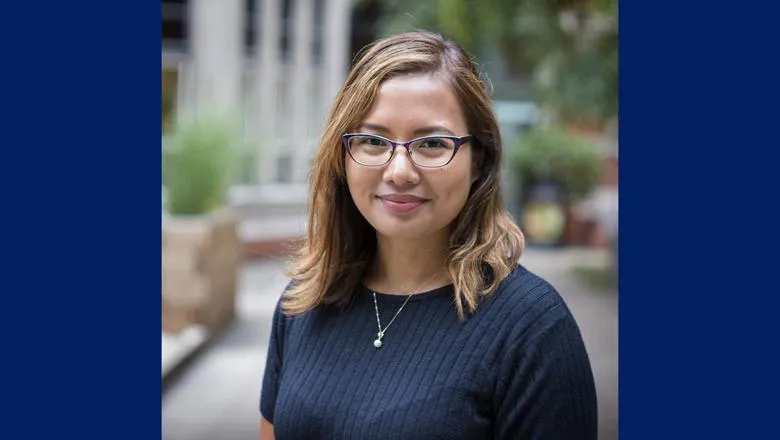08 March 2019
#WomenOfKings - Alessandra Bisquera
Celebrating and elevating King’s women for International Women's Day.

It's International Women's Day on Friday 8 March – a global day celebrating the social, economic, cultural and political achievements of women. This year's theme is Balance for Better, which calls for a more gender-balanced society. From the board room to the government, media coverage to employment, gender balance is essential for economies and communities to thrive.
To celebrate International Women's Day, we spoke to women from King's Faculty of Life Science & Medicine about their careers, inspirations and what drives them.
'I would strongly encourage women to study statistics as you get to work on so many different projects and collaborate with experts from multiple disciplines – no two days are ever the same.'
Alessandra Bisquera is a Research Fellow in Medical Statistics in the School of Population Health & Environmental Sciences.
What are you proudest of in your career?
I am lucky to be able to play a significant role in how research is conducted – from the design of a study right through to the reporting of results. I’ve published on a wide range of health and medical topics and worked with some wonderful scientists and students in advancing scientific discovery. It is great to see when an undergraduate or postgraduate student understands a particular statistical technique and how it’s used to improve the quality of their research.
What would you tell women who want to study in your field?
I would strongly encourage women to study statistics as you get to work on so many different projects and collaborate with experts from multiple disciplines – no two days are ever the same. I’ve worked with researchers to answer questions such as “How does a mothers’ diet influence pregnancy outcomes?”, “Does a new type of radiotherapy treat age-related macular degeneration?” and even “What is the effect of assessment type (peer to peer vs teacher) on student course achievement?”. Every project that collects data requires a statistician and you will always be in demand regardless of the field of study.
Who or what made you want to work in this field? How has your field changed since you started, and where do you see it going in the future?
I’ve come across so many interesting statisticians and the one thing they have in common is that they are so passionate about what they do! When I was an undergraduate I enjoyed reading about Ronald Fisher and the work that he did to create the foundations of modern statistics and genetics. The women that I work with now, including the Head of the Unit of Medical Statistics at Kings’ (Janet Peacock) are strong advocates of making statistics understandable and clinically meaningful. I find the collaborative environment she has created within the Unit one of the most enjoyable aspects of my current role at Kings’, as well as being encouraged to communicate statistics to non-statisticians.
With the increase in the number and speed of computer programmes it has become easier for researchers to run analyses and present results without fully understanding the assumptions that they are making about their data. People who are trained in statistics are needed more than ever to ensure researchers form reasonable and accurate inferences from collected information, and to prevent errors and biases when presenting results.
